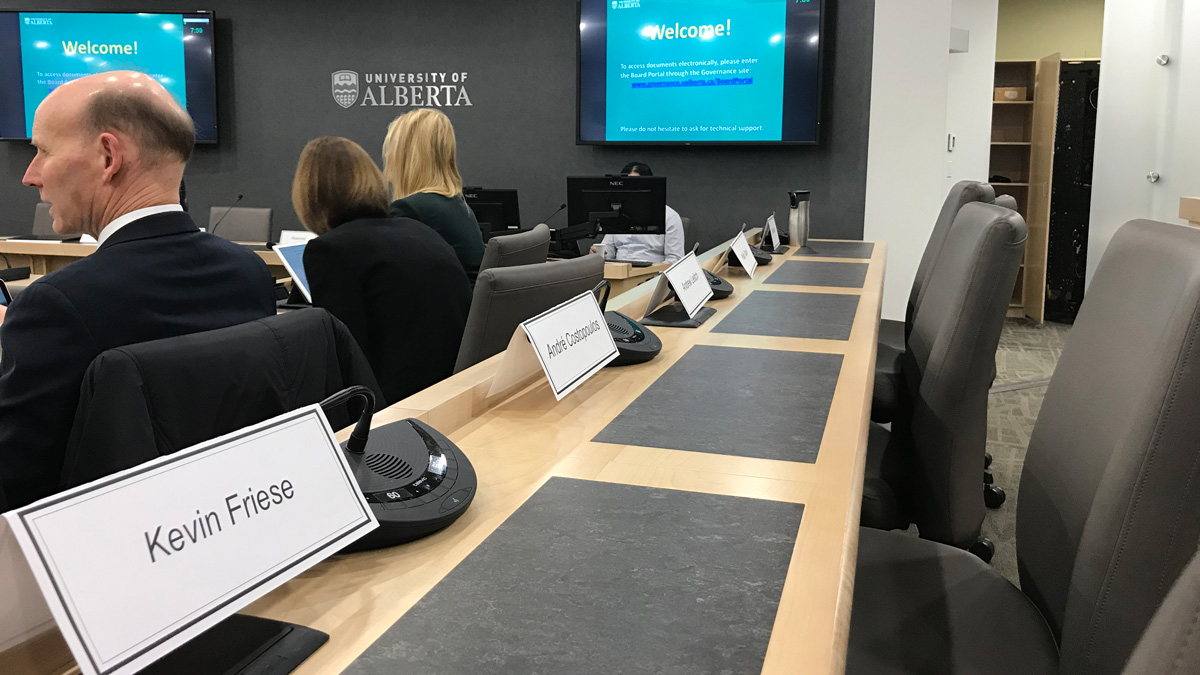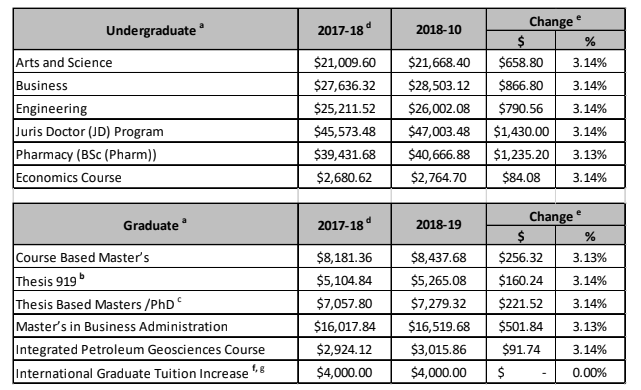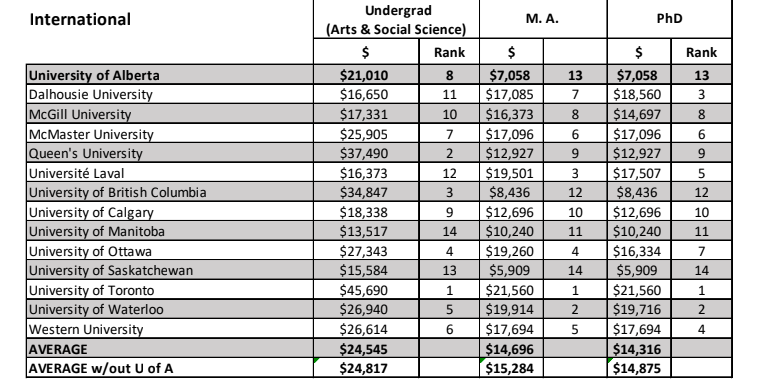International student tuition to increase by 3.14 per cent next year
 Sofia Osborne
Sofia OsborneThe Board of Governors has approved a 3.14 per cent increase of international student tuition for the upcoming 2018-19 academic year. Six board members including Students’ Union president Marina Banister, undergraduate Board of Governors representative Mike Sandare, and Graduate Students’ Association president Babak Soltannia voted against the motion. 11 members voted in favour.
Originally presented at the Board and Finance Committee meeting, the increase was proposed in anticipation of continued domestic tuition freezes, a lack of backfill funding, and a conservative amount of investment income.
The increase was heavily criticized by both Banister and Soltannia. While the increase is based on the academic price index, the university’s measure for increasing education costs, Solitanna has suggested that the increase should be based off the 1.7 per cent consumer price index instead. International tuition will increase by $658.80 for arts and science students, $866.80 for business students, and $790.56 for engineering students.

In a presentation to the board, Provost Steven Dew and Vice-President (Finance and Administration) Gitta Kulczycki said the university’s international student tuition rates are some of the lowest in Canada. While he said increasing costs could put international students in a hard financial spot, Dew added that supports such as bursaries and emergency loans are provided by the university to alleviate those pressures. Vice Provost and University Registrar Lisa Colins said $4.8 million in financial support was granted to international students last year, 80 per cent of that being from merit-based scholarships. 28 per cent of all international undergraduate students received some form of financial aid, the average amount being $4,015.

However, board member Sheri Somerville said the board shouldn’t lose sight of the difference $200 can mean for students. She added that increasing international student tuition by the consumer price index, instead of the academic price index of 3.14 per cent, should have been more closely examined by the board. As the board is in a hard place between balancing a budget and listening to students, Somerville said the board should be thoughtful moving forward.
“We have dual conflicts as a board,” she said. “We have the very real pressures that the international students have, and we have the very real task of making sure we are fiscally responsible and not making emotional decisions.”
Owen Tolbert, chair of the board’s Finance and Property Committee said that without the international tuition increase the university would have to cut expenditures to offset those costs, and this would likely come from academic and non-academic staff. He called Banister’s criticisms a “rock exercise.”
“(You say to administration) ‘Go get me a rock, go get me a budget,’” Tolbert said to Banister. “So they brought one back, and you said ‘I don’t like that budget, go get me a different one…’ just saying you don’t like it is a job half-done.”
Students’ Union president Marina Banister said the arguments being made by the SU are not purely emotional; there are real consequences to increased fees, like students being unable to finish their degree as well as damage to the university’s reputation. As members of the board, Banister said it’s easy to get disconnected from the reality of students’ experiences.
“I was reflecting when I was driving home from our board dinner… it was a gourmet meal, we had prosecco,” Banister said. “I was thinking to myself that tomorrow we may vote and more students may go hungry.”
Board of Governors chair Michael Phair noted that the board dinner’s food and drink were donated and not paid for by the university.
This article was updated on March 16 at 5:50 p.m.




